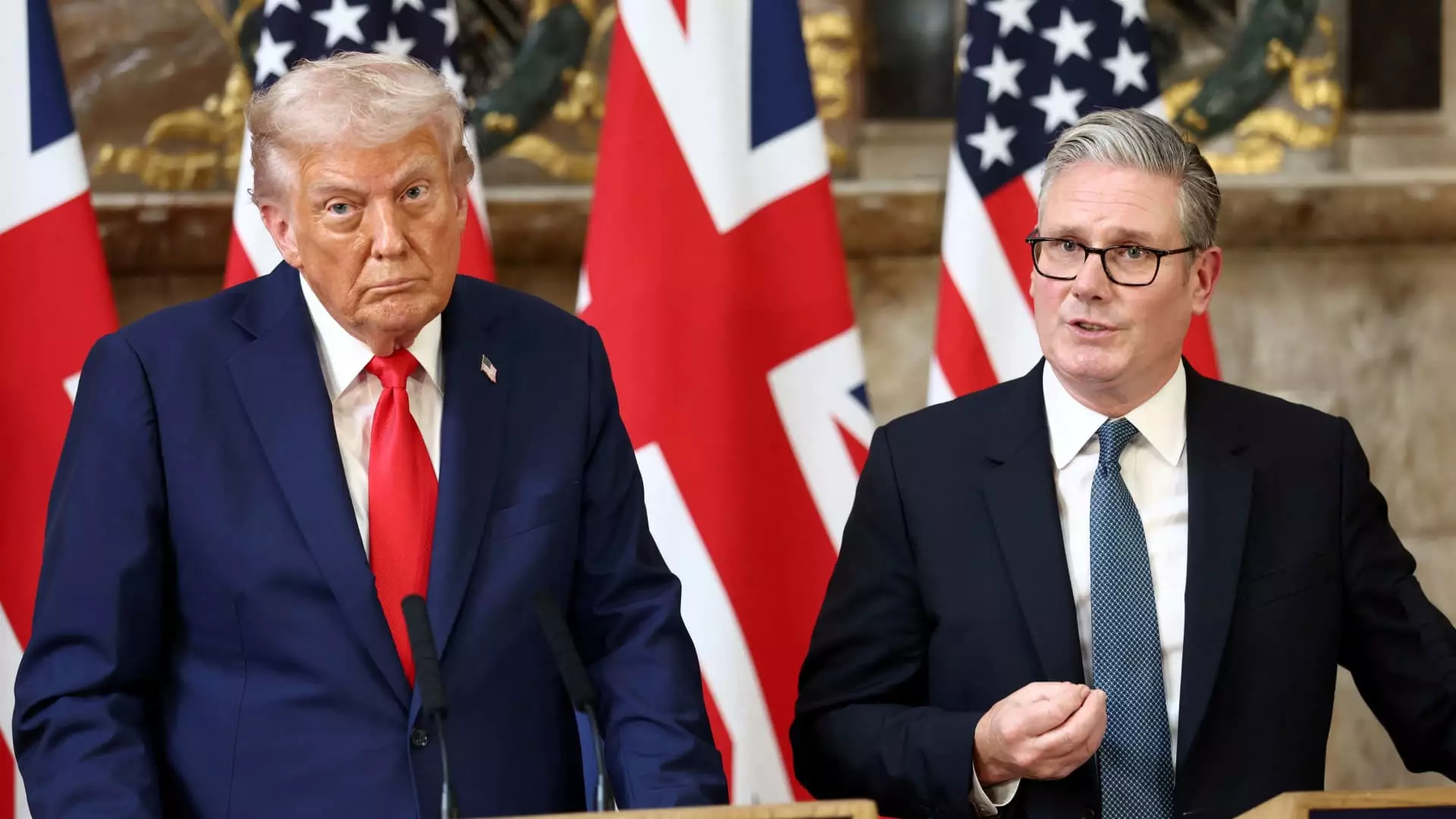In an era marred by economic instability, political turmoil, and a Brexit-fueled sense of disillusionment, the announcement of Blackstone’s colossal £90 billion commitment to the UK appears, on the surface, to inject much-needed optimism into Britain’s faltering financial landscape. However, a closer examination reveals that this grand gesture might be more symbolic than substantive. While it certainly signals a willingness from a major private equity player to consider Britain as a viable investment ground, it also exposes the persistent fragility beneath the country’s economic veneer. The UK’s reputation as an investment haven has significantly waned, yet here emerges Blackstone—an influential firm with vast resources—waving a sizable check as if to convince the world and themselves that Britain still commands robust economic viability.
Despite the positivity surrounding this announcement, skepticism must remain at the forefront. Promises of such magnitude—spread over a decade—risk creating an illusion of stability, masking the underlying issues of an underperforming economy. The fact that the commitment is a “forward capital” pledge rather than a series of firm investments means that actual dollars may never fully materialize or could be delayed amid shifting political or economic tides. This kind of vague optimism, while inspiring for some, should raise eyebrows among those who understand that true economic vitality requires consistent, tangible change—not just a promise of future investments.
Questionable Optimism from a Weakened Market
It’s critical to scrutinize how this announcement fits within the broader context of the UK’s current investment climate. Since Brexit, the British economy has been grappling with a perfect storm: sluggish growth, mounting political instability, and a withdrawal from the global stage that has discouraged foreign capital. For years, Britain’s allure as a global financial hub has diminished, evidenced by plummeting foreign direct investment (FDI) figures and the recent collapse of London’s IPO market. To put it plainly: a large pledge from Blackstone seems like an act of faith in a country whose investment appeal has waned significantly.
While industry experts like Mark Preskett see Blackstone’s commitment as a “vote of confidence,” the wider market sentiment paints a different picture. Many investors see Britain’s declining FDI and its weak positioning on global financial maps as warning signs of deeper systemic issues. Blackstone’s boldness might inspire some cautious optimism among certain market players, but it risks being seen as an outlier—a contrarian bet on a long-term recovery that many are skeptical about, at least in the immediate future.
Furthermore, the impact of Blackstone’s investment may be limited if the structural issues that plague the UK—namely political instability, high public debt, and sluggish economic growth—remain unaddressed. Promises of billions of dollars are easy to make; executing them in an environment riddled with uncertainty is another matter entirely. Without parallel reforms and a stable economic strategy, this investment could end up being a drop in the bucket, providing a temporary glow rather than a lasting turnaround.
The Power of Signaling and Its Limitations
Publicly, Blackstone’s pledge is being celebrated as a potential catalyst for renewed investment and economic dynamism. There’s an inherent power in such a high-profile announcement: it sends a signal to the global markets that Britain is still a land of opportunity. Beyond the immediate financial implications, this bold statement can help reshape perceptions and ignite a broader confidence wave. Other investors—both domestic and foreign—might see Blackstone’s commitment as a sign that Britain is still open for serious business.
However, the effectiveness of this signaling depends largely on how much of Blackstone’s pledged capital actually reaches the ground. Promises of investment are notoriously malleable; they can be negotiated down or canceled if circumstances change. As Duncan Edwards notes, there’s a critical difference between what is promised and what is actually delivered. Promises adorn press releases and political speeches; tangible outcomes require consistent political stability, conducive policy environments, and predictable economic conditions—elements that are currently in short supply in the UK.
The risk, then, is that this blockbuster announcement might become a symbol of misplaced optimism—a political and economic showpiece that fails to materialize into real, sustained growth. The challenge lies in translating these large-scale declarations into concrete projects that can genuinely stimulate economic activity, jobs, and local development.
The Danger of Overreliance on Outlandish Promises
From a center-leaning liberal perspective, it’s essential to view this investment announcement with cautious optimism. While acknowledging that private capital inflows are vital for Britain’s recovery, one must also recognize that overly optimistic projections and grand promises can be dangerous. They risk fostering complacency or, worse, masking the systemic flaws that must be addressed for genuine growth.
The underlying danger is in viewing Blackstone’s pledge as a cure-all. It’s a massive vote of confidence—certainly—but not a silver bullet. If the UK continues relying on such high-profile investments without fundamentally tackling issues like regulatory uncertainty, public sector dysfunction, or economic inequality, then these investments risk being short-lived and superficial.
Moreover, the inflow of capital from powerful firms like Blackstone may add pressure on Britain’s political leadership to implement reform—yet, historical evidence suggests that political will remains inconsistent, often driven more by short-term electoral gains than long-term strategic planning. This creates a precarious situation where promises of investment do little to alter the structural realities beneath the surface.
Blackstone’s announcement presents a complex picture: a tantalizing beacon of potential in a sea of uncertainty. While it’s tempting to see this as a sign that Britain’s economy might be turning a corner, one must remain critically aware of the many variables—political, economic, and systemic—that cast doubt on whether such promises will truly come to fruition. The boldness of Blackstone’s pledge underscores both the possibility of revival and the peril of misplaced hope.


Leave a Reply